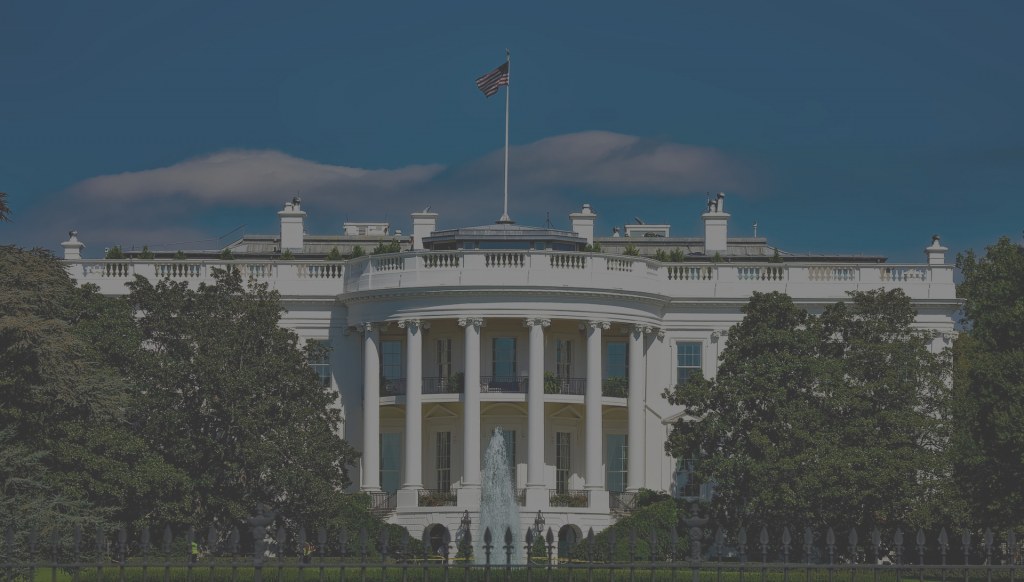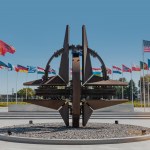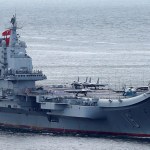
Nie masz czasu na zapoznanie się z całością artykułu?
Wystarczy, że klikniesz ikonę „oznacz artykuł do przeczytania później”. Wszystkie zapisane publikacje znajdziesz w profilu czytelnikaHow to change everything so that everything stays unchanged

Americans are trying to rebuild global political order. Their pressure on free trade zone (transpacific and transatlantic) is aiming at diverting the trend leading to the end of USA’s global hegemony.
„Power is the currency of international politics” – George F. Kennan
While in Poland the public opinion is worried at most about the European Union’s future, Americans are trying to rebuild the global political order. Their pressure on Trans-Pacific Partnership and Transatlantic Trade and Investment Partnership is designed to create the largest two free trade zones in the history of the world. The first one – with Asian South-Eastern countries, minus China, the second one – with EU.
These projects also have an essential political dimension. They are meant to prevent unfavourable, but currently visible processes, which in longer perspective would without fail lead to the loss of USA’s ‘superpower controlling international trade’ status.
Elites in Washington, earnestly disturbed by trends negative for themselves, are seeking a fundamental rebuilding of the world by running ahead. Through creating two new blocks of cooperation the USA as the strongest „shareholder” would be able to largely steer their development. Thus the US is protecting its predominance from possible candidates, who will either find themselves out of the new models of cooperation, or their development under the new formula would be re-subordinated to the hegemon’s interest.
Seen from the Potomac perspective
Americans know that their safety and power depend on the balance of power in Europe and Asia. In the case of Europe in XX century it signified necessity of preventing a continent’s subordination to one hegemon thus capable of obtaining the resources of all Eurasia for its own purposes.
Such adversary would quickly become a maritime power, having natural ambitions to dominate the world maritime trade, on which the power of U.S. rests. For an Eurasia zone is the only area in the world, subordination of which enables the concentration of might surpassing the America’s strength, derived from, to a large degree, exquisite geographical location of this country.
Therefore, in order to maintain the balance, USA supported Great Britain (that had similar interest in preventing creation of one European hegemon), and when Albion abated, every time Americans came with a rescue. This logic led to a decision to support the United Kingdom before the formal entrance of the USA into World War in 1917; the situation repeated during the next war.
However after 1945 it turned out that elimination of mighty Germany generated the power vacuum in Europe. Victorious Soviet Union was about to dominate the Eurasia, because at that time no group of European countries could, even jointly, balance its power.
This observation gave rise to introduction of containment policy and engaging USA in protecting and economic stabilisation of Europe. Americans did not want to make mistake of 1918-1939 ever again, when, leaving Europe, they allowed for the geopolitical play-off to unfold – i.e. the Second World War.
The same logic applied to Asia. In the early XX century United Stated endeavored to keep balance between Russia and Japan. Tokyo’s politics of superpower, driving at ousting of American interest from Asia, led to a war between the rising Nippon and USA, ended with the defeat of the former.
Similarly as in Europe, the elimination of Japan entailed to Soviet Union reinforcement and Americans had to take responsibility for Asia’s safety. This resulted in the Korean War.
The leaders of the United Stated decided to rebuild a Japan economy in order to restore a regional balance. USA’s temporary weakness in the 70s and reaching top form of USSR at Brehznev era induced Nixon to additional acquisition of China to counterpoise Kremlin’s impacts. This accelerated an end of the Soviet empire, enabling simultaneously China’s inconceivable economic development.
The victory in the Cold War in 1989 placed USA in a perfect position as the world’s sole champion that did not have on the horizon any challenger to the title. Under these conditions the Americans sought to spread the principles of Washington Consensus and favoured trade globalisation, of which they were concurrently a beneficiary and a guarantor.
Globalized trade was convenient for US as a principal maritime power and liberal rules of economic exchange promoted the abundant American capital, innovation and products on foreign markets.
For the same reason America supported collective security and cooperation systems (such as NATO or WTO), in which it has always been the largest shareholder. It enabled a control over potential competition and impeded radically any research of independent path that in longer perspective might threaten a hegemon’s domination. It is worth noting, in this context, how creation of the European currency in the early XXI century instantly caused tension in relations with the USA.
Threat to American hegemony
After 2008, Asia’s strategic calculation changed, which was caused by extraordinary growth of China. It is difficult to talk about the American supremacy in this region any more. China became the biggest economic partner for the majority of the countries in the region, including the close USA allies such as Japan or Australia. And China’s currency has slowly become the regional means of financial circulation.
In long term perspective, if Chinese growth stays on track, Beijing will dominate Asia, just like Washington prevails in the Western hemisphere. In this perspective one has to see endeavours undertaken since 2011 by the hegemon aimed to divert an unfavourable trend and contain the development of China. These include: military and strategic rebalancing to the Pacific, deepening of military cooperation with Australia, Singapore and Japan, attempt to prevent China’s reach and ocean/sea commons’ control to and from the Indian Ocean and Africa, supporting countries of the South China Sea region in territorial disputes with Beijing.
Currently, the key game is about convincing the world’s third economic power – Japan, to support the old order – regionally and globally. This task is not undemanding, since in 2012 China became Nippon’s biggest economy partner, and USA was weakened in the aftermath of immense financial crisis.
However, the United States cunningly used Japanese-Chinese tensions and supported Tokyo in the maritime dispute with Beijing. That has been leading eventually to diminishing of trade exchange between Asian superpowers and, consequently, to strengthening American-Japanese military alliance.
In turn, after the lifting by Washington of the decisions that stifled competitiveness of Nippon’s economy – 1985 “Plaza Accord” Agreement – the Japanese in the beginning of 2013 obtained the possibility of “easing” their monetary policy. This improved the export instantaneously and initiated the country’s recent rapid economy growth.
A new “Japanese miracle” pushed Tokyo into USA’s arms. Ipso facto, Nippon joined the defenders of the old order. Japan announced the accession to Transpacific Trade Zone and China got geopolitically outplayed.
This is starting to be felt in China’s economy. Nonetheless, the ball is still in play, as can be seen clearly even after the last summit of the ASEAN countries, where, which is characteristic, because of the difficulties concerning agreeing on the federal budget, the meeting lacked the presence of president Obama.
The world, being in the transition moment of building a new balance of power, holds its breath and waits, what would the effects of Chinese slowdown be and how Beijing would react to American actions.
Europe at the crossroads
In the meanwhile, Europe is in the serious crisis, economically and politically. In effect, the strongest Germany became the guarantor of eurozone, making countries of the zone dependent on its economy. For the USA any deepening of this process with simultaneous disintegration of the European Union itself might with time revive the menace of Berlin’s domination on the continent.
At the same time Germany became China’s key trade partner, reluctant to any practices and sanctions aimed at economy of this country and not necessarily interested in debility of China. This visible difference of interests between Germany and USA disturbs decision-makers in Washington.
In this logic one has to evaluate the proposition of establishing the Transatlantic Trade and Investment Partnership. This run ahead would reduce the difference in interests between Berlin and Washington, keeping China out of the system. It would constrain the possibility of uncontrollable rise of Germany’s authority at the expense of weaker European countries. And by changing the cooperation formula, it would petrify the old balance of power (with an American leading role), leaving e.g. Germany little space for its own directions of economic development and cooperation with countries such as China.
An open question is whether the free trade zone is going to be created. As, apart from liberal rhetoric, interests remain at least partly divergent. In this perspective one ought to see the scolding of British Prime Minister David Cameron by American politicians when he mentioned the possibility of the United Kingdom stepping out of the European Union, which would speed up Germany’s dominance in Europe. Through that prism as well one has to look at US policy towards Poland and the role of our country in American elites’ intentions.
The role for Poland
The attitude of the architects of the new-old order towards Poland is clear: maintaining the status quo. And possibly stirring our aspirations sufficiently for the Polish elites not to enter the possible German economic zone that might emerge after the EU decomposition and that could subsequently threaten USA’s interests as a hegemon.
However, those who rule the world do not want to strengthen Poland above the modest status quo. As this, in turn, could undermine the balance of power in Central and Eastern Europe. Giving Poland a chance of policy less following the Washington prescriptions is uncomfortable from the hegemon’s point of view. The existence of strategically strong Poland could – by impact on the countries behind our Eastern border – additionally destabilize a geopolitically unstable Russia. That – due to Russia’s raw materials’ depositor role and in context of China’s growth – may not necessarily be convenient for the United States.
A practical test of the USA’s intentions towards Warsaw would be the Americans’ attitude towards realization of the project of Polish air defence modernization programme. Its possible coming into existence would bring about grave strategic effects. Besides obtaining the military capabilities related to the possession of effective anti-missile and anti-aircraft defence, it might also provide the Polish autonomic command & control without the American participation.
From Poland’s perspective, collective systems with USA’s participation are generally favourable, because they constrain Germany. Nevertheless, in particular arrangements, due care should be taken to ensure that a future trade zone would give Poland as many economic benefits as possible. The elementary task for our politicians would be, in this context, smart utilisation of the difference of interests between USA and Germany.
However, Polish long-term goals in the East would be difficult to reconcile with a role envisaged for Poland in Washington. Because of objective reasons, e.g. geographical, we must try to rise above the status quo. In the situation of weakness and withdrawal of American hegemon from Europe, Poland as of today – being weaker both than Russia and Germany – does not have any possibilities or political room for conducting a self determined foreign policy.
In this narrow space the future game for Poland’s independent standing will play out.
Zobacz
The China Dream reigns at sea
A study published in 2016 argued that China was going to have the second largest navy in the world, second only to the US in 2020. Now we have new estimates suggesting that China’s navy is already the largest one in the world




















